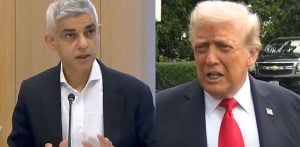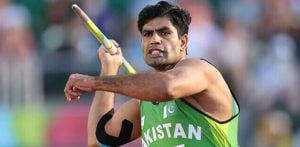India is now OpenAI’s second-largest market
Sam Altman’s recent visit to India, ahead of Prime Minister Narendra Modi’s upcoming trip to the United States, highlights India’s growing ambitions in artificial intelligence (AI).
The OpenAI CEO was warmly received by India’s Minister for Information and Broadcasting and Electronics and Telecommunications, reinforcing the country’s eagerness to engage with global tech leaders.
However, his presence also raises critical questions about India’s technological sovereignty and its evolving role in the global AI ecosystem.
Altman’s visit comes against a backdrop of controversy.
OpenAI has been accused by several Indian media houses—such as ANI, NDTV, CNBC, and CNN-News18—of training its AI models on proprietary content without consent.
The Federation of Indian Publishers claims OpenAI’s systems rely on their content, while OpenAI maintains that its models use publicly available data under fair use principles.
The company has challenged the jurisdiction of Indian courts, arguing that its servers are located outside India, thereby questioning the legal authority of the country’s judiciary.
This legal dispute could set a crucial precedent for how AI companies operate in India, potentially forcing them to comply with local content usage regulations.
In June 2023, Altman publicly expressed doubts about India’s capacity to develop advanced AI technologies, dismissing the country’s potential and challenging Indian CEOs to prove him wrong.
Ironically, India is now OpenAI’s second-largest market, which likely explains Altman’s recent visit.
His visit could be seen as an attempt to secure deeper market access in a country that is crucial to OpenAI’s growth strategy.
Despite the ongoing legal challenges, the Indian government’s enthusiastic engagement with Sam Altman appears somewhat contradictory.
It sends a mixed message about India’s technological ambitions, especially considering the Finance Ministry’s recent directive prohibiting government employees from using AI tools on official devices.
The directive reflects India’s cautious approach to AI adoption, driven by concerns about data security and technological dependence.
India’s ambition to build a robust AI infrastructure faces significant hurdles.
The country lacks access to key resources such as large language models (LLMs) and AI chipsets, which are primarily controlled by the United States and China.
To make matters worse, the US AI Diffusion regime has categorised India as a high-risk nation, alongside China.
If this classification isn’t lifted, India could be cut off from critical AI technologies by 2027, requiring specific US government approvals for access.
The timing of Sam Altman’s visit is significant, as India prepares to co-chair the AI Summit in Paris on February 11.
This engagement with OpenAI could be interpreted as a strategic move to align India more closely with the United States.
It raises the question: Is India signalling a shift towards deeper collaboration with the US-led AI ecosystem in response to growing geopolitical competition with China?
India’s dependence on foreign players for AI technologies exposes vulnerabilities in its long-term strategy.
While collaboration with companies like OpenAI may offer short-term benefits, the absence of a strong domestic AI ecosystem remains a serious concern.
India’s private sector has been slow to invest in AI infrastructure, leaving the country reliant on external sources for key technologies.
As PM Modi prepares for his high-profile visit to Washington, India stands at a critical juncture.
The Paris AI Summit presents an opportunity for the country to assert its vision for AI governance and carve out a leadership role in the global AI space.
But this can’t be achieved through symbolic gestures alone. India must focus on developing homegrown capabilities, fostering private-sector investment, and reducing its dependence on foreign technology.
The stakes are high.
If India fails to build a self-sustaining AI ecosystem, it risks being sidelined in the global AI race.
As the US-China rivalry intensifies, India must strike a delicate balance between aligning with global powers and pursuing technological self-reliance.
Modi’s visit to the US should be seen not as a concession but as a platform to assert India’s independent AI ambitions and secure its place in the global AI future.






























































